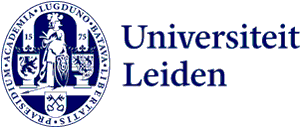
Nadine Akkerman appointed professor: 'Interdisciplinarity also strengthens the humanities'
Leiden University has a new professor. On 1 June Nadine Akkerman became Professor of Early Modern Literature and Culture, a position she feels is designed to help her help others.
For the past few months, Akkerman has found herself surrounded by traitors and spies, though luckily, only on paper, as she is analysing forged documents. After a project on reading letters without opening them, and the discovery of a portrait of Elizabeth Stuart that was treasonous, this focus on the thrilling comes perhaps as no surprise. Yet it is all part of a bigger picture, as her ERC Consolidator project tries to understand the essence of texts: the project aims to distinguish the different voices as they appear in documents – and to decide what makes a voice in for instance a letter ‘authentic’.
In this project, Akkerman and her team are investigating manuscript culture, and how people worked together to create handwritten documents. Both kings and commoners, whether literate or otherwise, would use secretaries or scriveners to transfer their thoughts from speech to paper, and Akkerman’s team want to find out how to disentangle the different voices that may thus be present in such collaborative texts.
Leaning over the fence
This project will occupy the first few years of Akkerman’s professorship, and is a good example of how expertise in one area can be applied to other topics. As an English literature specialist, her work is firmly rooted in this area, but she hopes to develop a blueprint that will work for different literatures and periods. For Akkerman, early modern studies is interdisciplinary to its very core.
When you share your research across the disciplinary boundaries, unexpected new worlds can open up.
Interdisciplinarity is a word that comes up more than once in our discussion. According to Akkerman, the future of the humanities lies in teamwork, just as it does for all of the sciences. ‘When you share your research across the disciplinary boundaries, unexpected new worlds can open up,’ she says. ‘Recently, an unexpected collaboration between members of The Young Academy sprung directly from the papers of Constantijn Huygens. An investigation of his habit of collecting recipes for perfume led to a project to reconstruct one of them that ended up encompassing literature, art history and neuroscience – we went from reading his memories of a scent to better understanding the connections between scent and memory. Such partnerships will become commonplace when Leiden University’s vision of ‘hubs’, where various disciplines come together, becomes reality.’
Akkerman also wants to contribute personally to the scientific exchange between researchers. ‘I hope I have arrived at a position where I can help make the academic world a better place to be, especially for early career researchers—they are under enormous pressure right now.
Back and forth to Oxford
For the time being, that help might take place primarily in cyberspace, because for the coming academic year Akkerman will be the Visiting Senior Research Fellow at Jesus College, Oxford. ‘I am an international researcher, which means that I’ll be abroad now and then. It just so happens that I’ll start my Leiden professorship in Oxford—luckily the two cities have long been friends—in any case, my diary tells me I’ll still be in Leiden at least once a month.
